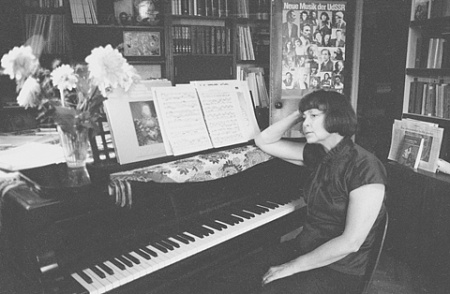
In many languages, the word for music itself is feminine—la musique in French, die Musik in German—yet the title of composer has historically been overwhelmingly masculine. This linguistic quirk reflects a stark reality: the annals of classical music are dominated by men. Is this because women lacked creative genius, or were they silenced by a world that refused to listen? A look into history suggests the latter, revealing a legacy of suppressed talent and forgotten masterpieces.
The historical record is sparse but telling. For centuries, the names of female composers are almost entirely absent. One of the earliest and most remarkable exceptions is Hildegard of Bingen, a 12th-century German abbess, mystic, and polymath. For her, music was a divine bridge to the cosmos, and she left behind more than 70 compositions, a testament to a talent that defied the rigid confines of her era.
Jumping forward to the 19th century, the stories of Clara Schumann and Fanny Mendelssohn-Hensel expose the societal cages built around gifted women. Clara, a prodigious pianist and wife of Robert Schumann, largely sacrificed her own compositional ambitions to manage her household, raise eight children, and champion her husband’s work. Fanny, sister of the celebrated Felix Mendelssohn, was an equally phenomenal talent. Yet, at 15, her father forbade her from pursuing music professionally, deeming it unsuitable for her future role as a wife and mother. Felix, in a misguided attempt to share her genius, even published some of her works under his own name.
Fanny Mendelssohn’s husband, however, championed her art, and thanks to his efforts, some of her work was published, including her 1841 piano cycle “Das Jahr” (The Year). This groundbreaking series of pieces, one for each month, predates Tchaikovsky’s famous “The Seasons” by over three decades. Tragically, Fanny died of a stroke while playing the piano, and the news of her death devastated Felix, who passed away just months later.
In Russia, Valentina Serova dared to enter the male-dominated world of opera. Despite her ambition and composing several operas, she faced withering criticism from her contemporaries. Pyotr Tchaikovsky, in a private letter, dismissed her work as clumsy and amateurish, questioning her fundamental musical literacy. In 1899, her opera “Ilya Muromets,” starring the legendary Fyodor Chaliapin, was booed by the audience, raising the uncomfortable question of whether the failure was engineered by a society unwilling to accept a woman as a serious operatic composer.
A generation later, Yulia Veisberg, a student of Nikolai Rimsky-Korsakov and Alexander Glazunov, emerged as a significant voice in the early Soviet avant-garde. She led the Leningrad Association for Contemporary Music and her work was performed alongside Dmitri Shostakovich’s First Symphony. Her promising career was tragically cut short in 1942 when she and her son were killed during the Nazi siege of Leningrad, another female voice lost to the turmoil of history.
Even in the modern era, where societal barriers have ostensibly fallen, the list of globally recognized female composers remains short. Figures like Sofia Gubaidulina, Galina Ustvolskaya, and Aleksandra Pakhmutova have achieved great acclaim, but they remain exceptions in a field still perceived as a male domain. The great mystery persists: are the obstacles facing female composers a product of an art form that demands a specific type of focus, or are they artificial barriers created by a world that is not yet ready to grant them equal standing? The talent is undeniable, and as more scores are unearthed from the archives, it is clear that the music—in all its feminine glory—is finally waiting to be heard.
